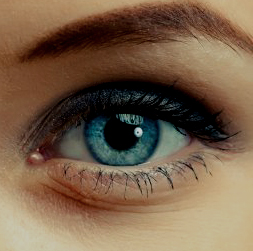
New results have been published from one of the first placebo-controlled clinical trials investigating the effects of microdosing Lysergic Acid Diethylamide (LSD). This Phase 1 trial is the first step in testing whether these kinds of psychedelic microdose methods could be useful as a therapeutic approach for treating Alzheimer’s disease, and while the early data doesn’t identify significant cognitive benefits in microdosing, it certainly demonstrates the method is safe enough to proceed to larger efficacy trials. The potential for psychedelic drugs such as LSD and psilocybin to confer potent anti-depressant effects has been demonstrated across a number of recent clinical trials. Psilocybin in particular has proved promising enough in this area for the FDA to give it Breakthrough Therapy status on two occasions over the past 12 months. One of the ways these psychedelic drugs work is by stimulating serotonin 5-HT2A receptors in the brain. These particular brain receptors not only mediate cognitive function, but disruptions to these neural processes have been implicated in many early symptoms of Alzheimer’s disease, including psychiatric symptoms such as anxiety and depression.
“Our research with serotonin 5-HT2A receptor agonists, such as LSD, suggest that they may represent a new strategy to treat diseases associated with chronic inflammation,” explains Charles Nichols, co-author of the new study. “LSD’s unique polypharmacology may serve to enhance its capacity to simultaneously modulate multiple key pathological processes in the brain associated with Alzheimer’s disease, including neuroinflammation, that are implicated in its progression from mild cognitive impairment.”
Of course, the potent psychoactivity of LSD limits its ability to be administered broadly and consistently as a common medicine. One or two strong doses accompanied by structured psychotherapy sessions may be helpful in treating major depression or addiction, but these psychedelics are not realistically deployable in patients for sustained therapeutic treatments. At least not in high psychedelic doses …
So, a major unanswered question in the field of psychedelic science is whether sustained sub-perceptual microdoses of drugs such as LSD can effectively improve mood and cognition. And despite years of anecdotal reports enthusiastically supporting the broad benefits of psychedelic microdosing, until very recently there had been no clear placebo-controlled clinical trial data on the subject.
One of the first published studies reporting the physiological effects of LSD microdoses on human subjects was conducted by researchers from the University of Chicago. The trial did not examine the longer term effects of microdosing, but instead was simply investigating how single, very low LSD doses affect a person’s mood and cognition.
Perhaps the most interesting outcome from that particular trial was in effectively homing in on the most optimal microdose of LSD that doesn’t produce any subjective or physiological effects that would interfere with normal day-to-day functioning.
A general hallucinogenic LSD dose is around 100 to 200 micrograms (μg). Testing four different dosages – a placebo, 6.5, 13, or 26 μg – the researchers concluded 13 μg is the highest dose recommended for a microdose. At 26 μg, subjects began reporting “drug-like sensations.”
This new study reports results from a trial conducted in the UK. This Phase 1 clinical trial set out primarily to explore the safety and tolerability of periodic LSD microdoses in healthy older adults. The trial is essentially a precursor to a larger Phase 2 study on the efficacy of LSD microdoses for Alzheimer’s disease.
The trial recruited a cohort of 48 healthy older adults with an average age of around 63 years. The subjects were randomly, and blindly, assigned to one of four dose groups – 5 , 10, 20 μg of LSD, or a placebo. Over three weeks the subjects received six doses in total. Doses were administered every four days, based on the most popularly accepted microdose regime proposed by anecdotal reports.
From a safety and tolerability standpoint the results suggest a promising path forward for future research. No adverse effects were detected in any of the dose groups, both across the three-week trial and in a follow-up examination one month later. No abnormalities were seen across blood pressure, heart rate, or ECG measurements.
“The study provides reassuring safety data and opens the door for larger scale clinical trials to evaluate the potential therapeutic effects of LSD,” says Robin Carhart-Harris, head of the Centre for Psychedelic Research at Imperial College London.
